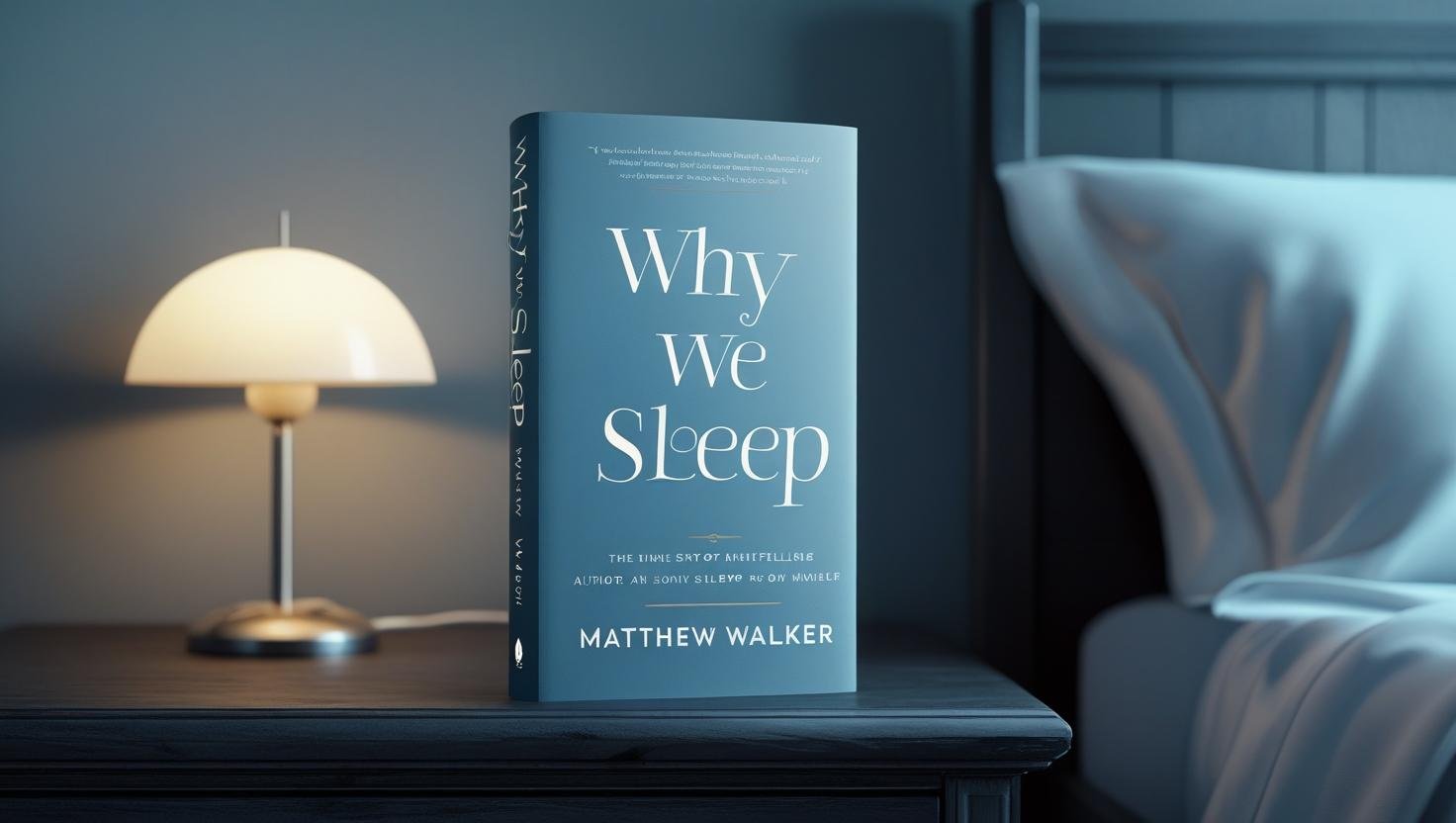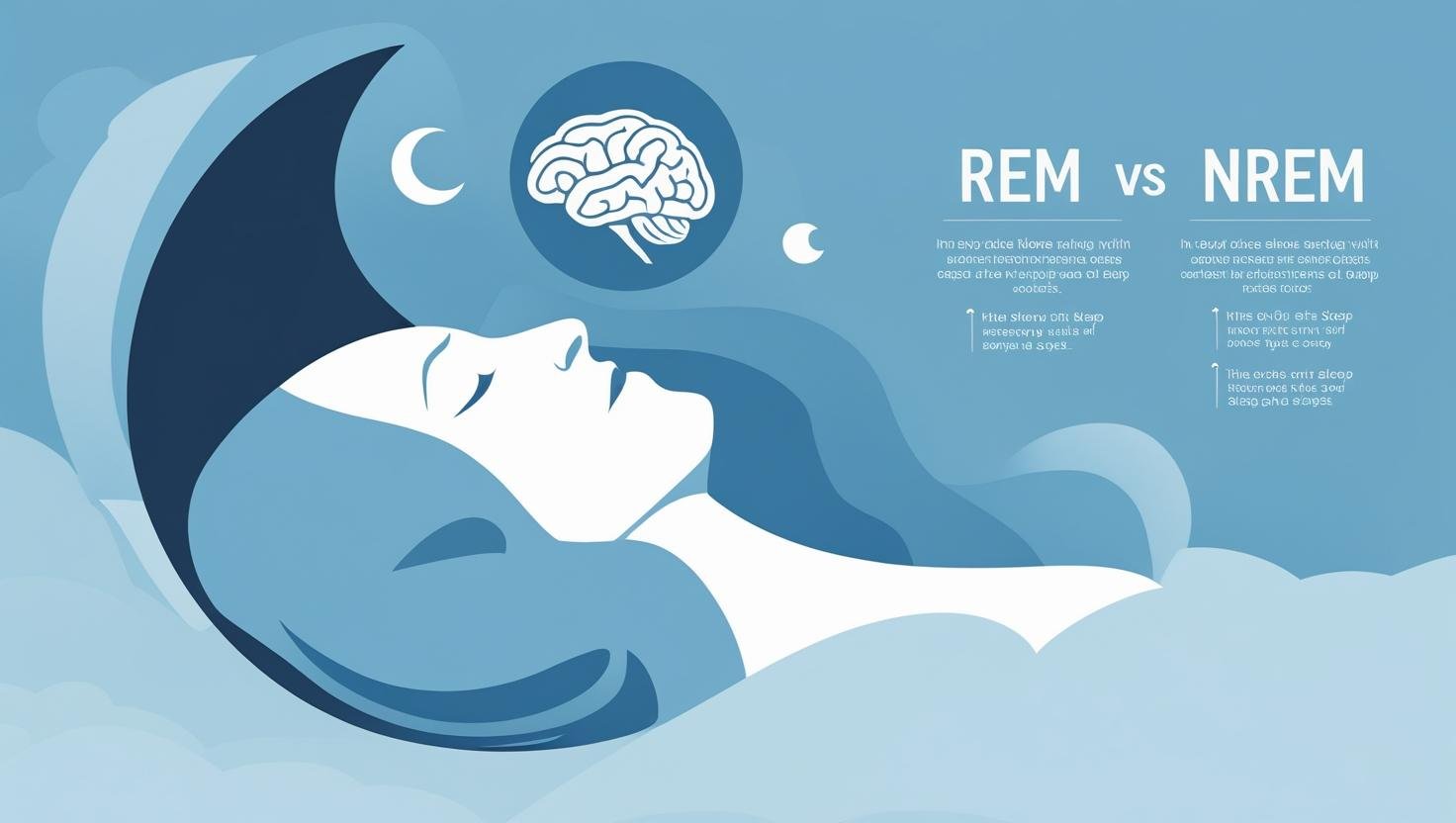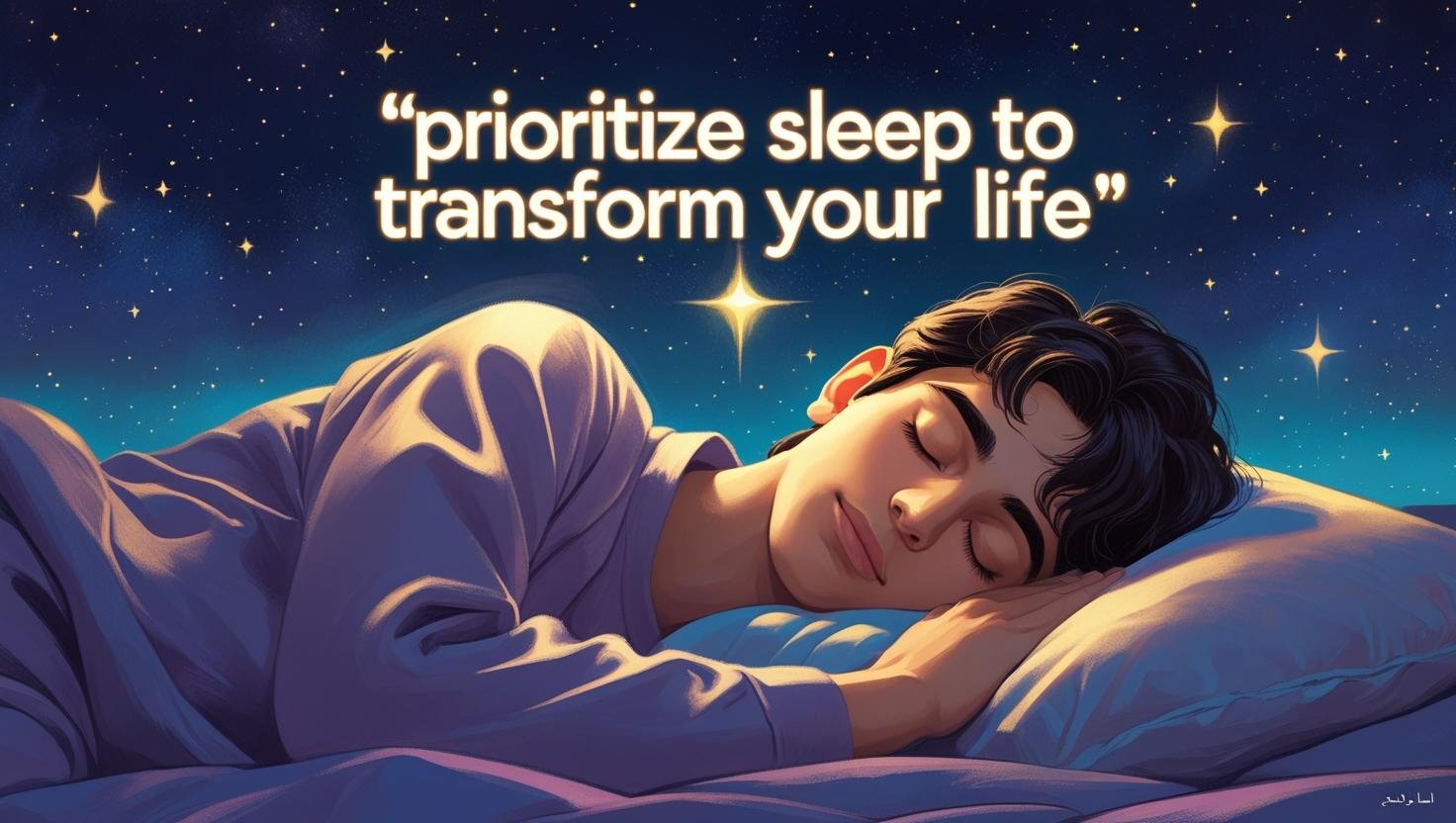1 Why We Sleep by Matthew Walker – A Deep Dive into the Science of Slumber
Introduction
Why We Sleep book review: In an era where burnout is worn as a badge of honor and hustle culture dominates, Why We Sleep by Matthew Walker delivers a crucial wake-up call. This groundbreaking book dives deep into the science of sleep, revealing why it’s not merely a biological function, but the cornerstone of cognitive performance, emotional health, and physical well-being. A neuroscientist and sleep expert, Walker draws on decades of research to unravel the mysteries of sleep and explain how modern life has disrupted our most vital natural process.
This comprehensive Why We Sleep book review delves into the key insights and scientific findings presented in the book, breaking down each section for a thorough understanding. Whether you’re a student, a working professional, a parent, or someone simply curious about sleep, this Why We Sleep book review will help you understand the transformative power of quality rest. We’ll explore the architecture of sleep, the consequences of sleep deprivation, the mysteries of dreaming, and the societal implications of widespread sleep neglect.
Ultimately, this Why We Sleep book review aims not just to summarize Walker’s findings but to inspire actionable changes in your daily life. By the end, you’ll understand why prioritizing sleep may be the single most important decision you can make for your health and happiness.

About the Author: Matthew Walker
Matthew Walker is a Professor of Neuroscience and Psychology at the University of California, Berkeley, and the founder and director of the Center for Human Sleep Science. With over 20 years of research in sleep science, Walker has become a globally recognized authority in the field. Before his tenure at Berkeley, he served as a professor of psychiatry at Harvard Medical School.
Walker’s expertise and compelling communication style shine through in this Why We Sleep book review. His work has been widely published in leading scientific journals, and his contributions have significantly advanced our understanding of how sleep affects the brain and body. His engaging TED talks and appearances on podcasts such as Joe Rogan Experience have helped bring the science of sleep into public conversation.
He wrote Why We Sleep out of a growing concern for how dangerously undervalued sleep has become in modern society. Combining rigorous science with accessible prose, Walker crafts a compelling narrative that educates and alarms, without falling into sensationalism. His mission is clear: to revolutionize the way we think about sleep, making it as integral to wellness as diet and exercise. That’s a key takeaway emphasized repeatedly in this Why We Sleep book review.
Walker’s background gives him a unique authority on the subject, enabling him to translate complex neuroscientific concepts into clear and compelling arguments. He not only explains what sleep is and why it matters, but also addresses how cultural norms, educational systems, and workplace policies must evolve to support healthier sleep habits for all. This Why We Sleep book review aims to carry forward that vision.
Overview of the Book
Why We Sleep is structured into four main parts, each focusing on a different dimension of sleep science. The book is not only informative but also narrative-driven, making it accessible even to readers with no background in neuroscience or psychology. Walker’s approach is to first educate the reader about the biological mechanics of sleep, then demonstrate its impacts on health, and finally advocate for societal change.
This Why We Sleep book review summarizes each section below.
Part 1: This Thing Called Sleep
In this first section of Why We Sleep, Matthew Walker lays the groundwork by explaining the different types of sleep — REM and NREM — and how they impact the brain and body. A key takeaway from this Why We Sleep book review is the understanding of circadian rhythms and the biological mechanisms that regulate our sleep-wake cycles. Walker describes how modern influences, such as caffeine and artificial lighting, interfere with our natural sleep patterns, making this section especially relevant for readers seeking to improve their sleep hygiene.

Part 2: Why Should You Sleep?
This part of Why We Sleep presents a compelling case for prioritizing rest. According to Matthew Walker, sleep is crucial for memory consolidation, immune function, cardiovascular health, and emotional stability. One of the striking points in this Why We Sleep book review is the scientific link between chronic sleep deprivation and diseases like Alzheimer’s, cancer, and diabetes. Walker argues convincingly that sleep is a non-negotiable pillar of health — on par with diet and exercise.
Why Should You Sleep? explores the essential benefits of sleep, connecting it to nearly every aspect of our well-being. Walker presents evidence showing that sleep enhances our ability to learn, retain information, and make logical decisions. Sleep fortifies the immune system, regulates blood sugar, reduces inflammation, and supports cardiovascular health. For example, after just one night of insufficient sleep, natural killer cell activity drops by as much as 70%, drastically compromising immune defense.
He also demonstrates that sleep deprivation is linked to an increased risk of Alzheimer’s disease, cancer, stroke, and heart attacks. A study cited in the book revealed that daylight savings time, which causes just a one-hour reduction in sleep, leads to a 24% spike in heart attacks the following day. Conversely, extending sleep can reverse some of these risks and improve physiological resilience.
Walker discusses how sleep plays a crucial role in regulating emotional stability. REM sleep in particular helps us process complex emotions and stressful experiences. Brain scans of sleep-deprived individuals reveal a 60% amplification in amygdala activity, the region associated with fear and emotional reactivity. Without REM sleep, emotional responses become exaggerated and irrational.
Creativity and problem-solving also benefit from adequate sleep. During REM sleep, the brain forges novel connections, enabling insights that are inaccessible during wakefulness. Walker recounts historical anecdotes, such as the invention of the sewing machine and Paul McCartney’s composition of “Yesterday,” both credited to dream inspiration.
He emphasizes that sleep is a non-negotiable biological necessity, not an optional lifestyle choice. Caffeine and alarm clocks may mask the symptoms of sleep deprivation, but they cannot compensate for its physiological damage. Even short-term sleep loss can lead to impaired judgment and cognitive dysfunction, akin to alcohol intoxication.
This part of the book also includes compelling findings on sleep’s impact on learning and memory. Sleep before learning prepares the brain to absorb new information, while sleep after learning helps consolidate and store it. Students who nap after studying retain significantly more than those who do not.
Walker explains how deep NREM sleep is especially important for memory consolidation and motor skill development. He describes experiments where participants improve in tasks like piano playing or maze navigation only after a good night’s sleep.
Throughout Part 2, Walker makes the case that insufficient sleep is a public health epidemic. He calls for increased awareness and policy changes to prioritize rest as much as nutrition and exercise. Schools should start later to accommodate adolescent sleep cycles, and workplaces should create environments that encourage healthy sleep routines. These are points this Why We Sleep book review strongly echoes.
![]()
Part 3: How and Why We Dream
In Part 3 of Why We Sleep, Walker shifts focus to dreaming. This section of the Why We Sleep book review uncovers how dreams — especially those during REM sleep — help us process emotions, consolidate memories, and foster creativity. The author illustrates how dreaming functions as a form of overnight therapy and is deeply connected with psychological health. Through vivid examples and scientific studies, Walker deepens our appreciation for the mysterious and often overlooked world of dreams.

Part 4: A New Vision for Sleep in Society
The final part of Why We Sleep expands the conversation to societal and institutional attitudes toward sleep. This chapter of the Why We Sleep book review advocates for practical reforms — like delayed school start times, changes in workplace expectations, and public health policies — to combat widespread sleep deprivation. Walker also raises concerns about the use of sleeping pills and promotes natural sleep as the most effective remedy.
In the final part of Why We Sleep, Matthew Walker turns his attention to the broader societal implications of our sleep habits and outlines a compelling case for systemic change. Having established the biological and psychological importance of sleep, Walker argues that the societal disregard for sleep constitutes a public health crisis—one that demands a radical rethinking of our cultural values, policies, and institutions.
Walker begins by exposing the many ways in which modern society is “sleep-hostile.” From early school start times to long work hours, the demands of contemporary life are fundamentally misaligned with our biological sleep needs. For example, teenagers experience a natural shift in their circadian rhythms that makes it difficult for them to fall asleep before 11 PM. Yet, high schools often begin as early as 7:30 AM, depriving students of essential REM sleep. Walker cites studies showing that delaying school start times leads to better academic performance, reduced absenteeism, and even lower rates of car accidents among teenage drivers.

Workplace cultures are equally problematic. The glorification of overwork and sleep deprivation is not just unhealthy—it’s counterproductive. Employees who are well-rested are more productive, creative, and emotionally stable. Sleep-deprived workers, by contrast, are more prone to errors, poor decision-making, and burnout. Walker calls for a new corporate ethos that values rest as an investment in employee performance and well-being. He even highlights companies like Google and Nike that are beginning to incorporate nap pods and flexible schedules to support employee sleep.
Healthcare is another area of concern. Medical professionals, particularly residents and interns, often endure grueling 24-hour shifts. Walker condemns this practice as both dangerous and scientifically unjustifiable. He references data showing that medical errors increase significantly during long shifts and that sleep-deprived doctors are more likely to make diagnostic mistakes. Reforming these outdated practices, he argues, would enhance patient safety and improve physician well-being.

Walker also critiques the way society deals with sleep disorders. Millions of people suffer from insomnia, sleep apnea, and other sleep-related conditions, yet these issues are often underdiagnosed and undertreated. He advocates for greater public education and easier access to sleep clinics and therapies. Cognitive Behavioral Therapy for Insomnia (CBT-I), for instance, is a highly effective, drug-free treatment that remains underutilized due to a lack of awareness and trained practitioners.
Public policy plays a crucial role in shaping sleep behavior. Walker suggests several evidence-based reforms: later school start times, restrictions on night-shift work, public awareness campaigns, and infrastructure improvements like better street lighting and noise control to support restful sleep. He emphasizes that just as seatbelt laws and smoking bans were once radical but are now standard, sleep-friendly policies can and should become normative.
Technology is both a culprit and a potential ally. While screen time and blue light disrupt circadian rhythms, technological innovations can also promote healthier sleep. Walker discusses wearable sleep trackers, smart lighting systems, and apps that encourage good sleep hygiene. However, he warns that no gadget can substitute for behavioral change and environmental support.
![]()
In closing, Walker issues a powerful call to action. He urges individuals, institutions, and governments to prioritize sleep as a pillar of public health. The science is clear: better sleep leads to better outcomes in education, workplace productivity, healthcare, and overall quality of life. The time has come to move from awareness to action.
Through Why We Sleep, Matthew Walker has not only illuminated the critical importance of sleep but also outlined a practical roadmap for a well-rested society. By adopting his recommendations, we can transform our relationship with sleep—from neglect and disdain to respect and reverence—and, in doing so, transform our lives. This Why We Sleep book review wholeheartedly supports that vision.
Why This Why We Sleep Book Review Matters
Matthew Walker’s Why We Sleep is more than a scientific exploration — it’s a wake-up call. As highlighted throughout this Why We Sleep book review, the book masterfully connects neuroscience with everyday habits, pushing readers to rethink their relationship with sleep. Whether you’re battling insomnia, managing stress, or simply curious about why sleep matters so much, this Why We Sleep book review offers evidence-based insights that can transform your well-being.
![]()
By blending engaging storytelling with groundbreaking research, this Why We Sleep book review brings clarity to the often-overlooked role of sleep. It reminds us that prioritizing sleep is not indulgence—it is self-preservation. The science is conclusive, and the benefits are profound. This Why We Sleep book review urges readers to not only learn from the book but to act on it.
Frequently Asked Questions (FAQs)
1. What is the main message of Why We Sleep by Matthew Walker?
The core message of the book, as underscored in this Why We Sleep book review, is that sleep is a non-negotiable biological necessity. It is essential for memory, emotional regulation, immune function, creativity, and overall longevity.
2. How many hours of sleep does Matthew Walker recommend?
Walker recommends 7 to 9 hours of sleep per night for adults. In this Why We Sleep book review, we reaffirm that anything less than 6 hours is linked to serious health risks including cognitive decline and chronic disease.
3. What are the dangers of sleep deprivation?
As detailed in this Why We Sleep book review, sleep deprivation can lead to:
-
Impaired learning and memory
-
Increased risk of heart disease, stroke, and diabetes
-
Higher chances of cancer and Alzheimer’s disease
-
Emotional instability and depression
-
Weakened immune response
-
Reduced fertility
-
Increased likelihood of accidents and medical errors
4. Why is REM sleep important according to the book?
REM sleep supports emotional health, processes emotional experiences, enhances creativity, and consolidates memory. This Why We Sleep book review emphasizes REM sleep as a form of overnight therapy, critical for psychological resilience.
5. Can sleep really help improve learning and memory?
Yes. As this Why We Sleep book review repeatedly highlights, sleep before learning prepares the brain, and sleep after learning strengthens and consolidates memory.
6. Does Matthew Walker recommend using sleeping pills?
No. Walker discourages sleeping pills for long-term use. The Why We Sleep book review notes his strong endorsement of CBT-I (Cognitive Behavioral Therapy for Insomnia) as a more effective and safer alternative.
7. How can I improve my sleep based on the book’s advice?
Walker suggests the following, echoed in this Why We Sleep book review:
-
Maintain a regular sleep schedule
-
Avoid caffeine and alcohol before bed
-
Reduce screen exposure at night
-
Keep the bedroom dark, cool, and quiet
-
Avoid long naps after 3 PM
-
Use a calming pre-sleep routine such as reading or meditation
8. Is napping good for you?
Yes, short naps (20–30 minutes) can boost alertness and cognitive performance. The Why We Sleep book review warns against long or late naps, which may interfere with nighttime sleep.
9. What societal changes does the book advocate for?
The Why We Sleep book review outlines several reforms:
-
Delayed school start times for teenagers
-
Sleep-friendly workplace policies (e.g., flexible hours, nap spaces)
-
Shorter and safer medical shifts
-
Public education about sleep hygiene
-
Regulation of technologies that disrupt slee
10. Is Why We Sleep suitable for non-scientific readers?
Absolutely. This Why We Sleep book review affirms that Walker’s writing is clear, engaging, and jargon-free, making it ideal for readers from all backgrounds.
Final Thoughts on Chapter Reviews
Each chapter of Why We Sleep adds a new layer to our understanding of sleep—from its evolutionary origins and biological functions to its impact on health, creativity, and society. Walker masterfully combines hard science with real-life relevance, making the book as informative as it is urgent.
As summarized in this extensive Why We Sleep book review, the book is a treasure trove of knowledge that reveals sleep not as a passive state, but as a powerful tool for personal transformation. Walker makes an ironclad case that better sleep leads to better everything—learning, memory, decision-making, immunity, longevity, and emotional health.

By following the insights and recommendations offered in this Why We Sleep book review, readers can reclaim their nights, improve their days, and enhance every aspect of their lives.
Published by shubhanshuinsights.com – Your trusted guide for insightful book reviews on wellness, psychology, and personal growth.
” 1 Think and Grow Rich by Napoleon Hill – A Definitive Blueprint for Success”“1 The Life-Changing Benefits of Regular Book Reading”“1 The Power of Your Subconscious Mind Review – A Life-Changing Book Analysis”